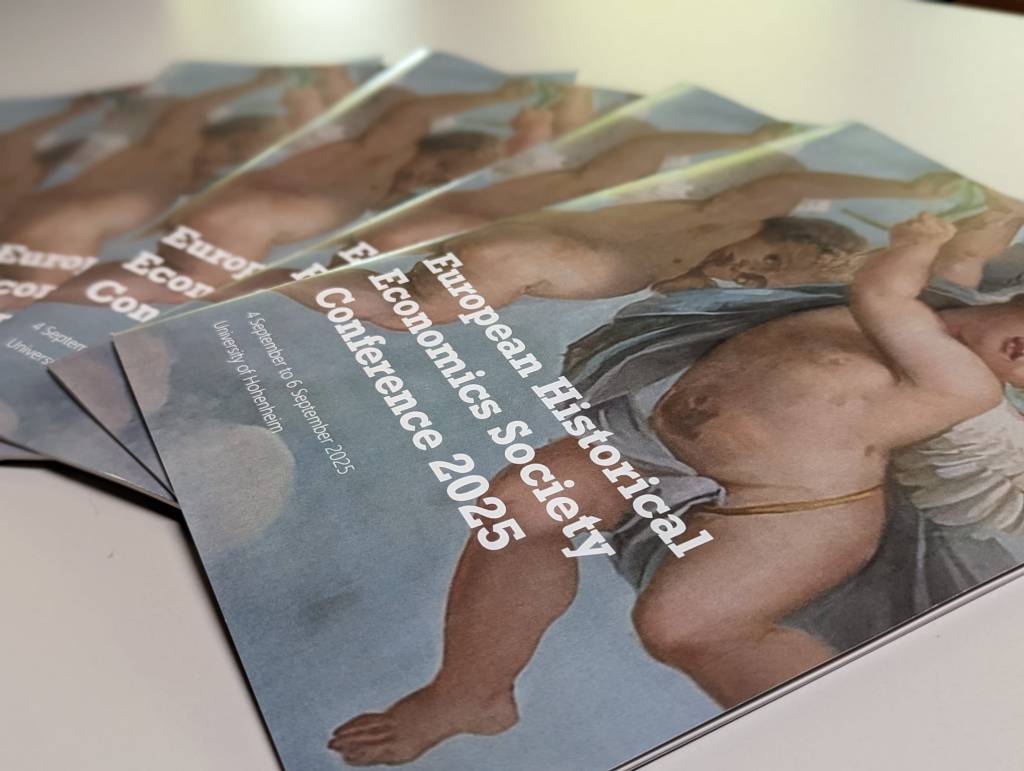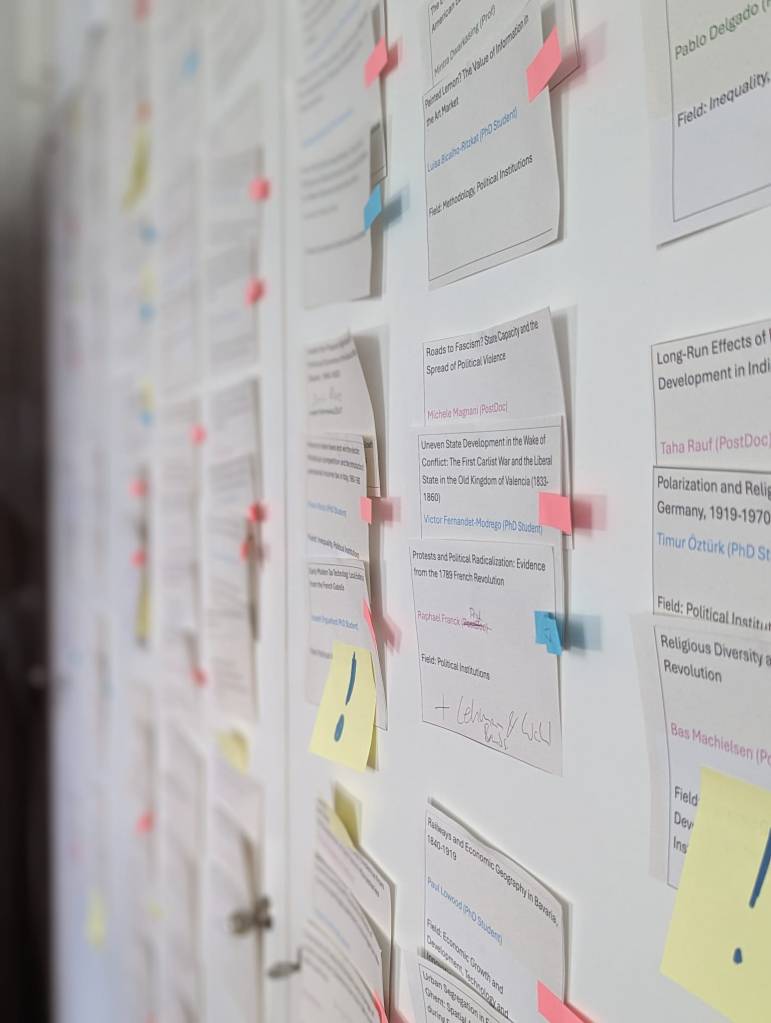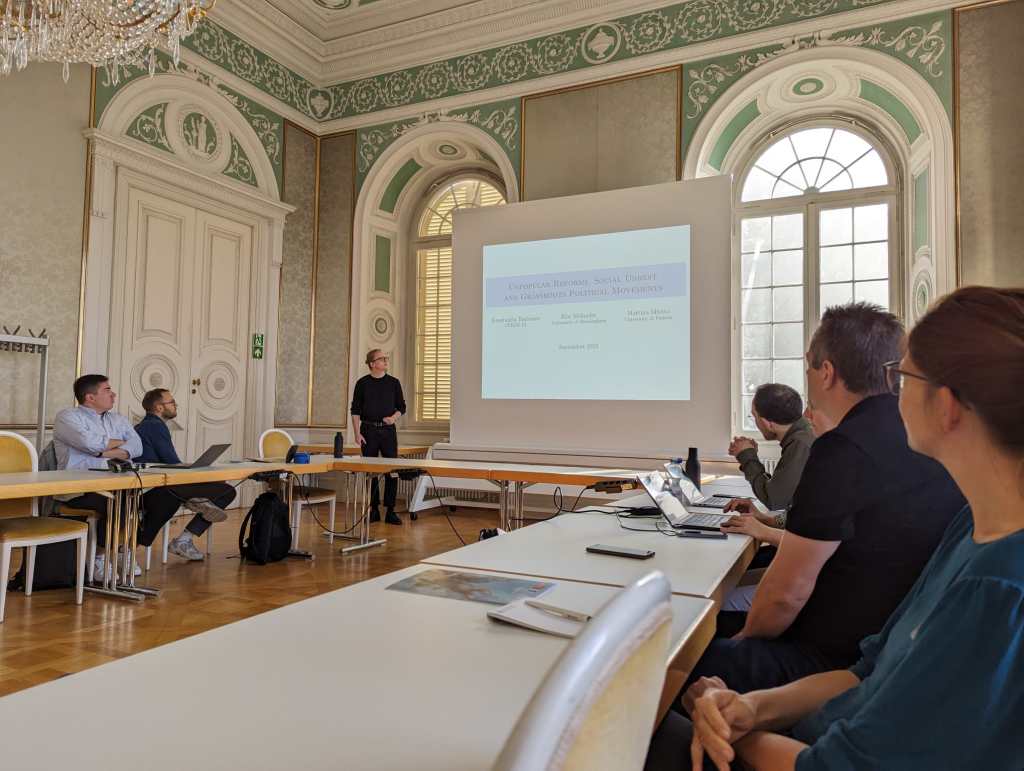The EHES 2025 conference at the Universität Hohenheim has come to an end. I want to thank everyone who helped make it possible. Without my team, the many engaged colleagues, helpers, and participants, this would not have been nearly as successful.
For me, it was a truly special moment in my career to host this conference as President of the Society. What made it even more special was the presence of people who have shaped my path in economic history:
Albrecht Ritschl, who first inspired me to enter the field, my PhD supervisor Kevin O’Rourke,
Mary O’Sullivan, who was an important role model for me, and important companions over the past decade, including Jochen Streb, Carsten Burhop, Dr. Fabian Wahl, and PD Dr. Felix Selgert.
This combination of scholarship, community, and personal connections made the conference an unforgettable experience. Thank you to everyone who contributed! Now I hand over the baton to Oscar Gelderblom, who will serve as the next President and host the conference in Antwerp in 2027, an event I look forward to very much.




